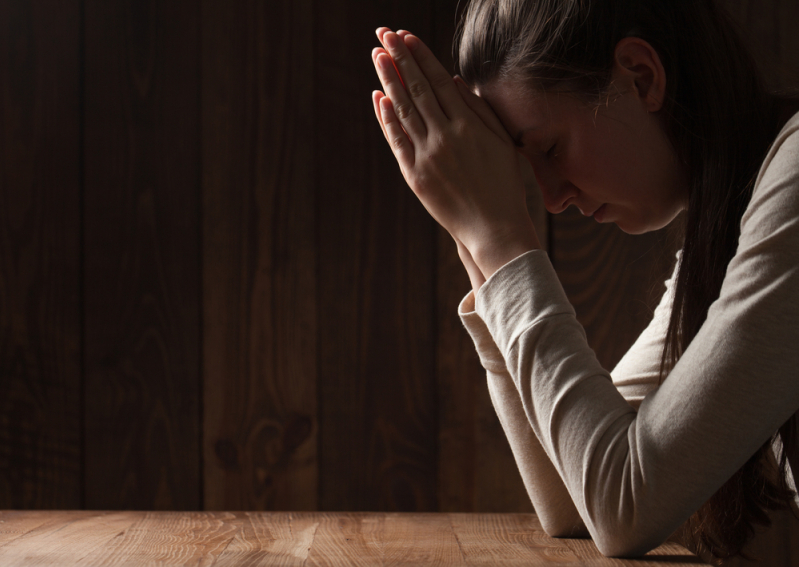
A groundbreaking new study found that women who go to church at least once a week have a lower risk of suicide than women who never attend a service, prompting researchers to suggest that "religion and spirituality may be an underappreciated resource that psychiatrists and clinicians could explore with their patients."
The study, published this week in JAMA Psychiatry, looked at associations between religious service attendance and suicide from 1996 through June 2010 using data from the Nurses' Health Study.
It found that attendance at religious services once per week or more was associated with an approximately fivefold lower rate of suicide compared with never attending religious services.
Among 89,708 women ages 30-55, 17,028 attended a religious service more than once per week, 36,488 attended once per week, 14,548 attended less than once per week, and 21,644 never attended. In addition, women who attended religious services frequently were less likely to use an antidepressant and were also less likely to be current smokers and more likely to be married.
"There were 36 suicide events during follow-up, with suicide incidence declining with increasing religious service attendance," said the study, led by Tyler J. VanderWeele at Harvard's T.H. Chan School of Public Health.
"Our results do not imply that health care providers should prescribe attendance at religious services. However, for patients who are already religious, service attendance might be encouraged as a form of meaningful social participation. Religion and spirituality may be an underappreciated resource that psychiatrists and clinicians could explore with their patients, as appropriate."
The study was conducted primarily among Catholic and Protestant women with repeated measurements of religious service attendance and detailed information on dietary, lifestyle, social, psychological and medical risk factors. The authors also noted that women in the study sample were mainly white Christians and female nurses, which can limit the study's generalizability.
The JAMA study was released just months after the Center for Disease Control found that between 1999 and 2014, the suicide rate increased by a staggering 24 percent, with the highest rate for females being in girls aged 10-14.
In 2012, a ten-year study from The American Journal of Psychiatry found that children who were raised in their mother's religion were better protected against depression.
"Individuals with no religious affiliation are at greater risk for depressive symptoms and disorders," according to the study. "People involved in their faith communities may be at reduced risk for depression, and private religious activities and beliefs are not strongly related to risk for depression."
Another article published in Psych Central examined why exactly religion is important to mental health issues and called on the public health system to include "spirituality as a potential resource in mental health recovery and wellness."
"Spirituality is an untapped resource for recovery from serious mental health issues. That's the most important reason. We know that spirituality and religion can play a role in health and wellness for everyone. But the public mental health system has been hesitant to venture into this realm," said Rev. Laura Mancuso, who is a director of the initiative on the relationship between spirituality and mental health at The Chaplaincy Institute for Arts and Interfaith Ministries.






